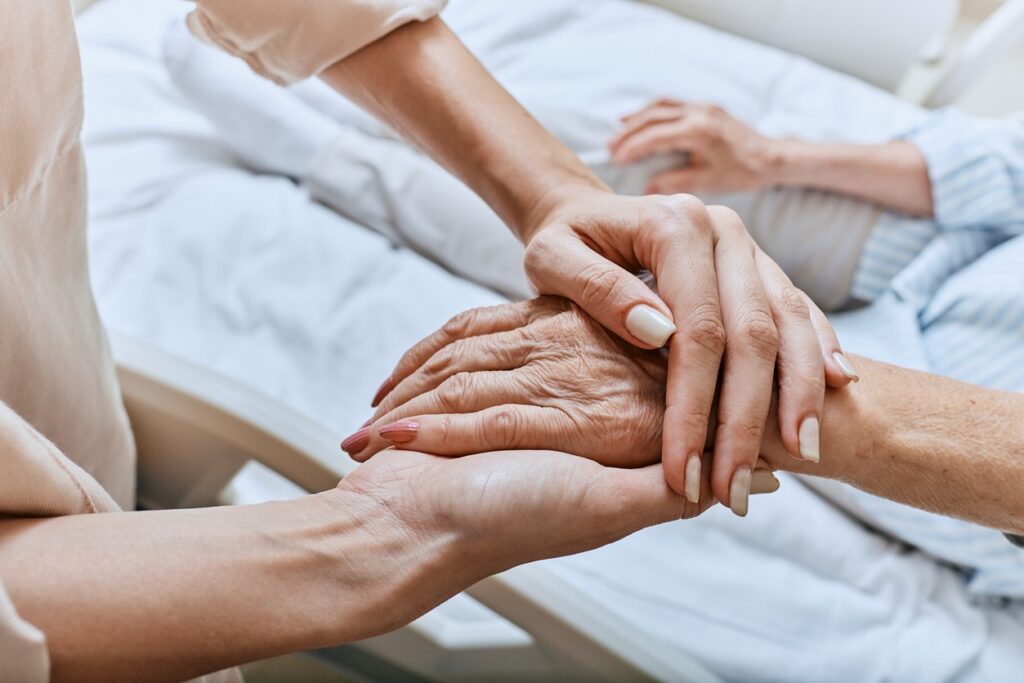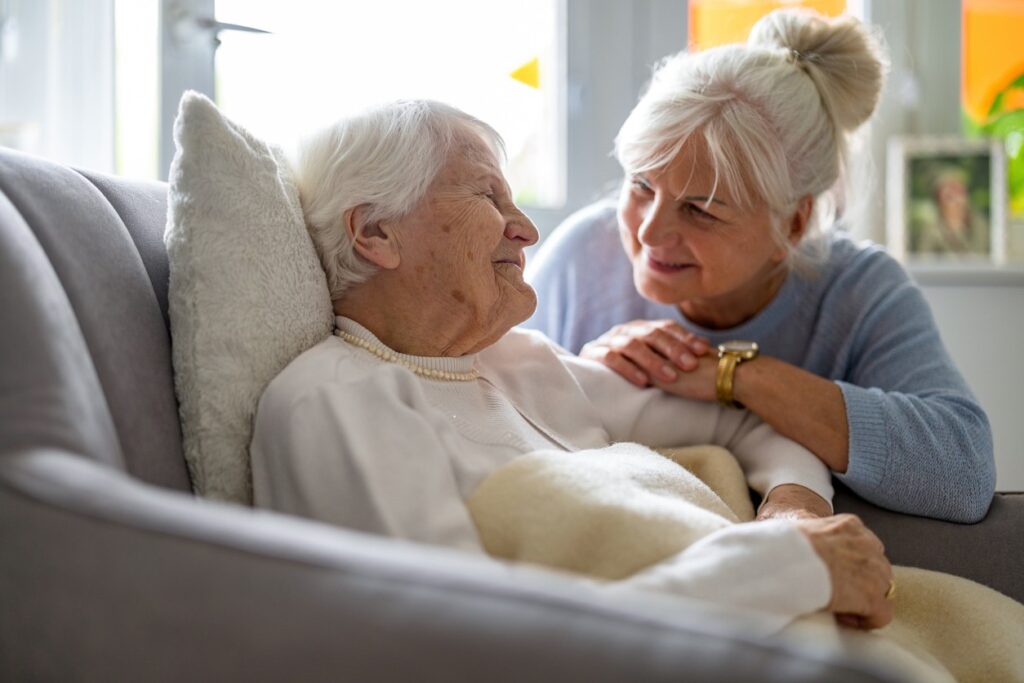When someone you love is facing a serious or terminal illness, life can feel uncertain and overwhelming. Along with concern for their comfort, families often carry a mix of emotions—sadness, hope, fear, and gratitude. In these tender moments, hospice care provides more than medical treatment. It surrounds patients and families with compassionate care, helping everyone move through this journey with dignity, comfort, and understanding.
What Hospice Care Means for Families
Hospice is not just about healthcare—it is a philosophy of end-of-life care that honors life, even in its final stages. When curative treatment is no longer effective, hospice shifts the focus toward peace, comfort, and quality of life.

Hospice care extends beyond the patient. Families receive emotional, practical, and spiritual support, because those caring for a loved one deserve care, too. A dedicated hospice provider brings together physicians, nurses, social workers, chaplains, counselors, and volunteers to form a circle of support. This teamwork eases the caregiving burden and reassures families during a difficult time.
For every hospice patient, care is centered around the patient’s needs—whether that means managing physical discomfort, offering guidance on emotional struggles, or helping families prepare for the journey ahead.
Emotional Support for Families in Hospice Care
Facing the end of life is an emotional journey, and it’s normal to feel overwhelmed by sadness, guilt, and fear. Yet, moments of peace and gratitude also shine through the darkest days. Hospice professionals recognize the full spectrum of these feelings and meet families with open arms and listening ears—never judgment. This support can come as one-on-one counseling, family conversations, or grief support groups where stories and feelings bring relief and connection. Hospice helps families prepare for what lies ahead through anticipatory grief counseling, so fears don’t grow silently in the heart.
Children and teens have unique questions and emotions, too. Hospice counselors guide parents in finding gentle, age-appropriate ways to talk about illness or loss, helping keep families united through compassion and understanding. Through these services, Partners In Care ensures that families never have to navigate emotional struggles or grief alone.
Practical Support and Respite Care for Caregivers
Caring for a loved one with a terminal diagnosis can be both meaningful and exhausting. Family caregivers often manage medications, meals, hygiene, and appointments, which can quickly become overwhelming. Hospice care lightens this load so families can focus on spending time together. Programs like the Hospice Transitions Program provide extra support as needs change.

The help comes in many forms:
1. Respite care
Trained professionals step in to give caregivers short breaks, allowing time to rest, run errands, or simply regroup. This kind of self-care isn’t a luxury; it’s essential.
2. Daily care assistance
Hospice aides provide personal care like bathing, grooming, and medication management, while also ensuring the right medical supplies and comfort measures are always in place..
3. Care coordination
Nurses and social workers handle communication between doctors, pharmacies, and caregivers, preventing confusion and streamlining care.
4. 24/7 access
Questions or concerns can arise at any hour. Knowing hospice teams are always available offers families reassurance when it matters most.
Together, these practical supports reduce the caregiving load and allow families to find balanced time to rest and connect.
Hospice Education and Guidance for Families

The end-of-life path can seem full of unknowns. Families often wonder how symptoms will change and when to act. Families are also guided in understanding the difference between hospice and palliative care, so they know which service best fits their needs at different points in the journey.
Nurses share what to expect about pain, breathing, anxiety, or other symptoms. Social workers help families with important documents like advance directives and legal paperwork, always centering the patient’s wishes. Families may also benefit from Home Health Services when additional medical support is needed at home.
This compassionate guidance helps families feel prepared rather than overwhelmed. Knowing what to expect and when to seek help can ease anxiety and build confidence.
Spiritual and Cultural Support in Hospice Care
Spiritual needs and cultural traditions matter deeply to families. Hospice care honors every belief and ritual that brings comfort. Chaplains are available not just for prayer, but to listen, reflect, or simply be present in a way that respects your family’s values.
Families are encouraged to celebrate customs, whether lighting candles, singing songs, or holding ceremonies. Hospice facilities strive to feel warm and welcoming—with private rooms and communal spaces where families can rest, gather, and remember.
By embracing these traditions and taking a holistic approach, hospice care nurtures heart and spirit even as it attends to physical needs.
A Family’s Heartfelt Thanks
The greatest testament to hospice care’s impact comes from families themselves. Dan and Sheryl shared their gratitude:
“It takes a special kind of person to care enough to take the time for others, to do whatever it takes to help someone out. We cannot fully express in words our deep appreciation for your kindness and committed care of our mother. Everyone who helped were deeply vested in not only what she needed for her comfort, but our entire family as well. Every one of you holds a place in our hearts. For everything you have done, for everything you have given, thank you.”— Dan and Sheryl, family members of a loved one cared for through Partners In Care.
These words beautifully illustrate hospice’s whole-person, whole-family approach that reaches beyond medical care.
Bereavement and Grief Support After Hospice Care

When a loved one passes, grief begins a new phase of care. Hospice continues to walk alongside families through bereavement support. Counselors provide safe spaces to express feelings and share memories, easing loneliness and pain.
Support may take many forms: grief groups, individual counseling, resources for children and teens, and help planning memorials or traditions. Hospice meets families where they are, knowing grief is not linear and healing takes time.
Finding Meaning in Moments
Hospice care helps families discover meaning in small, precious moments—a favorite story, a shared laugh, a quiet afternoon together. These moments don’t erase sorrow, but they light the path with tenderness and love.
Families often find hospice brings them closer together, with deepening bonds and renewed strength. Many describe how hospice helped transform sadness into shared gratitude and connection. Research supports these experiences, showing hospice care reduces stress and supports emotional wellbeing in families.
Hospice Care Supports Families Every Step of the Way
Hospice is a steady, compassionate presence during life’s most difficult moments. It offers comfort, kindness, and hope, supporting patients and families with dignity and love.
At Partners In Care, we are committed to honoring every person’s dignity and every family’s story. As a trusted hospice provider, our team delivers skilled medical care, emotional support, symptom management, and spiritual care. We provide the right medical equipment, counseling, and pain relief to meet the patient’s needs during the final days.
Whether care is provided at home, in a hospital, or at a skilled nursing facility, we remain dedicated to uplifting not only the patient but also the family members who walk this journey alongside them.
Hospice Care FAQ:
- Does hospice care support families as well as patients?
Yes. Hospice cares for the whole family, not just the patient. Along with medical care, it offers emotional, practical, and spiritual support so caregivers feel less alone and more supported during a difficult time. - How does hospice help caregivers manage stress and avoid burnout?
Hospice provides respite care, giving family caregivers short breaks to rest or attend to personal needs. Counseling and caregiver education are also available to reduce stress and strengthen coping skills. - What grief support is available for families?
Grief support continues after a loved one passes. Families can access counseling, support groups, and resources for children and teens to help them process loss and begin healing. - Does hospice offer spiritual or cultural support?
Yes. Hospice honors all beliefs and traditions. Spiritual counselors and chaplains provide guidance, reflection, or prayer, while also supporting families in observing meaningful customs. - When should a family consider hospice care?
A family should consider hospice care when a loved one has a terminal diagnosis, usually with a life expectancy of six months or less, and the focus of care shifts from curing the illness to ensuring comfort, dignity, and quality of life; beginning these conversations early allows patients and families to benefit fully from the medical, emotional, and spiritual support that hospice provides.

